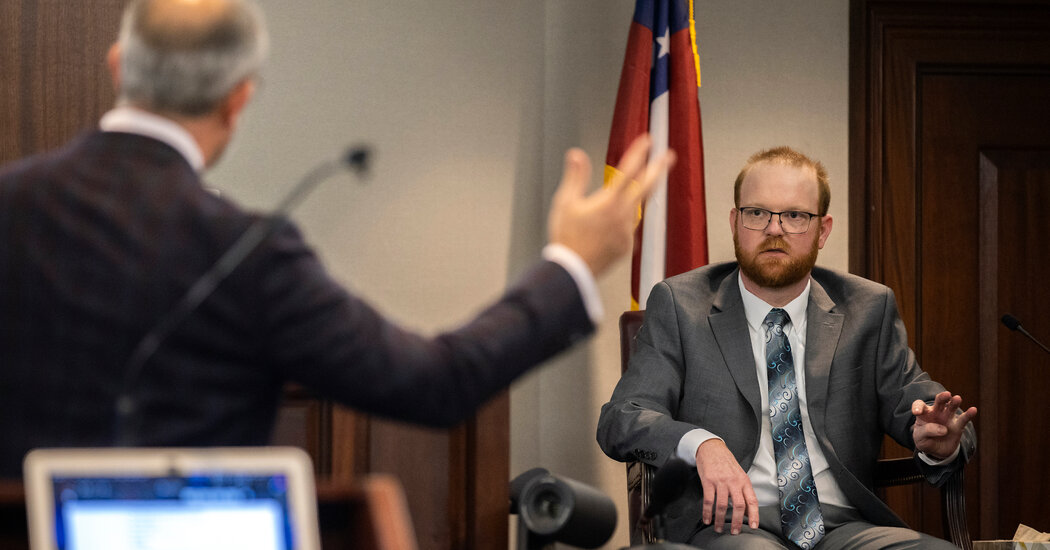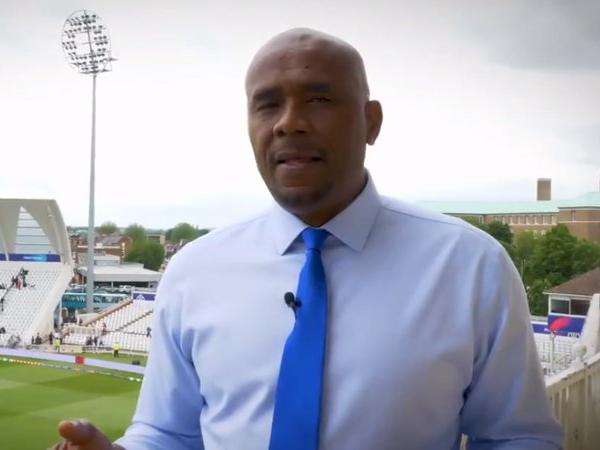

Travis McMichael, the man who shot Ahmaud Arbery to death after chasing him through a suburban Georgia neighborhood, testified in his own defense on Wednesday, arguing that pointing his gun at Mr. Arbery was an attempt to “de-escalate” the situation, a tactic he said he had learned during use-of-force training while serving in the U.S. Coast Guard.
“If you pull a weapon on someone, from what I’ve learned in my training, usually that tells people to back off,” Mr. McMichael said, describing it as “compelled compliance.”
Mr. McMichael, 35, is among three white defendants facing murder charges in Mr. Arbery’s death. Along with his father, Gregory McMichael, and their neighbor William Bryan, he stands accused of chasing Mr. Arbery, a 25-year-old Black man, in two trucks through the Satilla Shores neighborhood outside the city of Brunswick. When Travis McMichael got out of his truck, he and Mr. Arbery struggled over Mr. McMichael’s shotgun.
Mr. McMichael described the encounter as a “life or death” situation and said he suspected that Mr. Arbery was a burglar who was potentially armed. No evidence has been presented that Mr. Arbery had a weapon with him.
Mr. McMichael said that when he ultimately pulled the trigger, Mr. Arbery was overpowering him.
“I shot again because I was still fighting,” he testified. “He was all over me, he was still all over that shotgun and he was not relenting.”
After a third shot, according to video, Mr. Arbery collapsed.
“I was in shock,” Mr. McMichael said.
He described the encounter as “the most traumatic experience of my life.”
Asked by his lawyer if he had left his house that day intending to kill Mr. Arbery, he replied, “I did not.”
The defense team has argued that the men suspected Mr. Arbery of committing a series of local break-ins. He had been spotted several times on security camera video at a nearby home under construction.
Mr. McMichael described a neighborhood that had been increasingly on edge over what he called “steady” crime. He said the “typically small-town” community had been overtaken by thefts and break-ins. Cars, including his own truck, had been broken into. Belongings had been stolen, he said, including his pistol and a neighbor’s trailer.
“It was continuous,” he said. “Every couple months, you would hear of something else, something else.”
When Mr. Arbery was seen running through the neighborhood on the afternoon of Feb. 23, 2020, the men pursued him — a decision that prosecutors have characterized as one based on flimsy assumptions about Mr. Arbery and his presence in Satilla Shores.
“He was mad,” Mr. McMichael said. “Which made me think that something has happened. It’s not what I expected.”
He continued: “This guy is obviously — something is not right. He seems dangerous to me.”
Toward the end of his testimony, Mr. McMichael described the moment he realized that Mr. Arbery had died.
“I stood up, realized that I had a gun here, and that he’s passed away, and the police are on the scene,” Mr. McMichael said, his voice breaking as he neared tears. “So I walked over to the side, and put my shotgun down. After that, it was a blur.”
Mr. McMichael is expected back on the witness stand on Thursday morning.
24World Media does not take any responsibility of the information you see on this page. The content this page contains is from independent third-party content provider. If you have any concerns regarding the content, please free to write us here: contact@24worldmedia.com

Marnus Labuschagne Caught Off-Guard By ODI Captain Call After Steve Smith Snub

Everyone Is Looking Forward To It, The Standard Will Be Very High – Jacques Kallis On CSA’s SA20

Danushka Gunathilaka Granted Bail On Sexual Assault Charges

Ramiz Raja Sends Legal Notice To Kamran Akmal For Defamatory, False Claims Against The Board

Harbhajan Singh Reckons Mumbai Indians Should Release Kieron Pollard Ahead Of The IPL Auction 2023

Ian Bishop Praises Sam Curran For His Performances On Bouncy Australian Tracks

Why Choose A Career In Child Psychology?